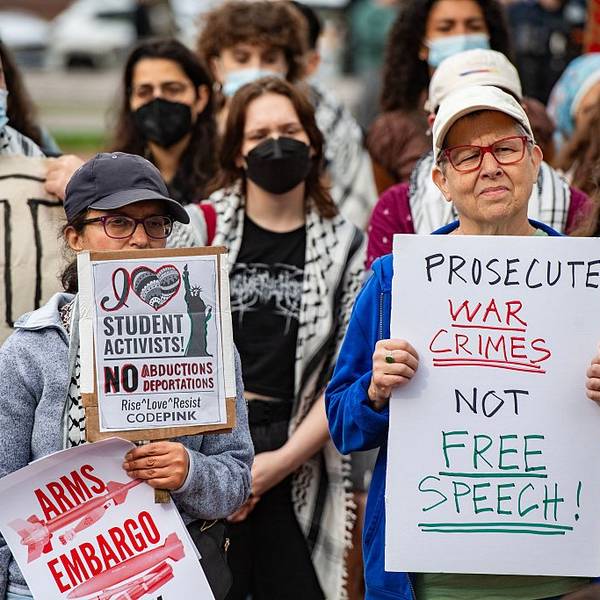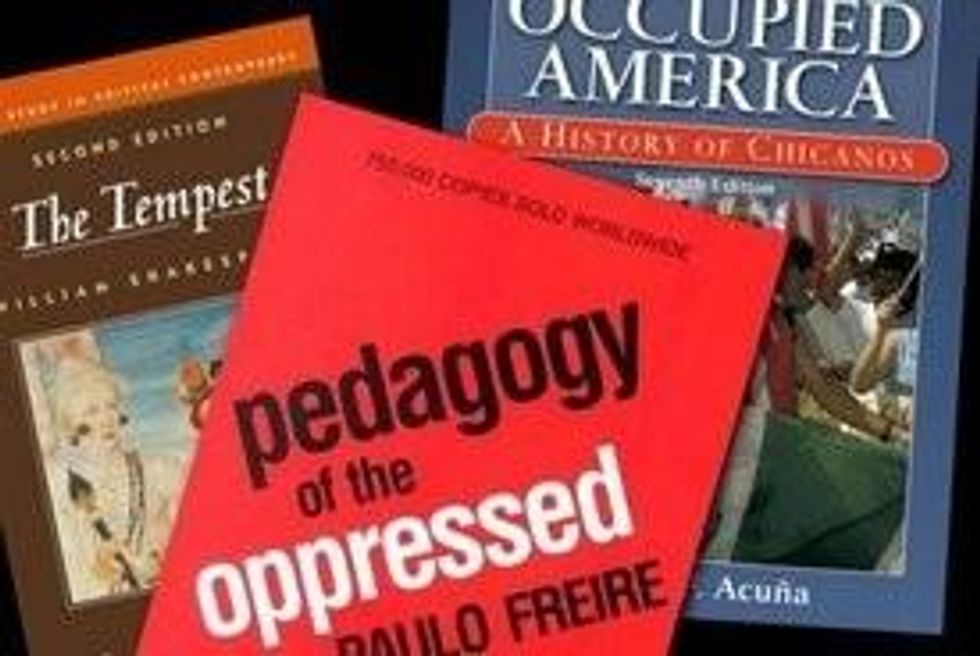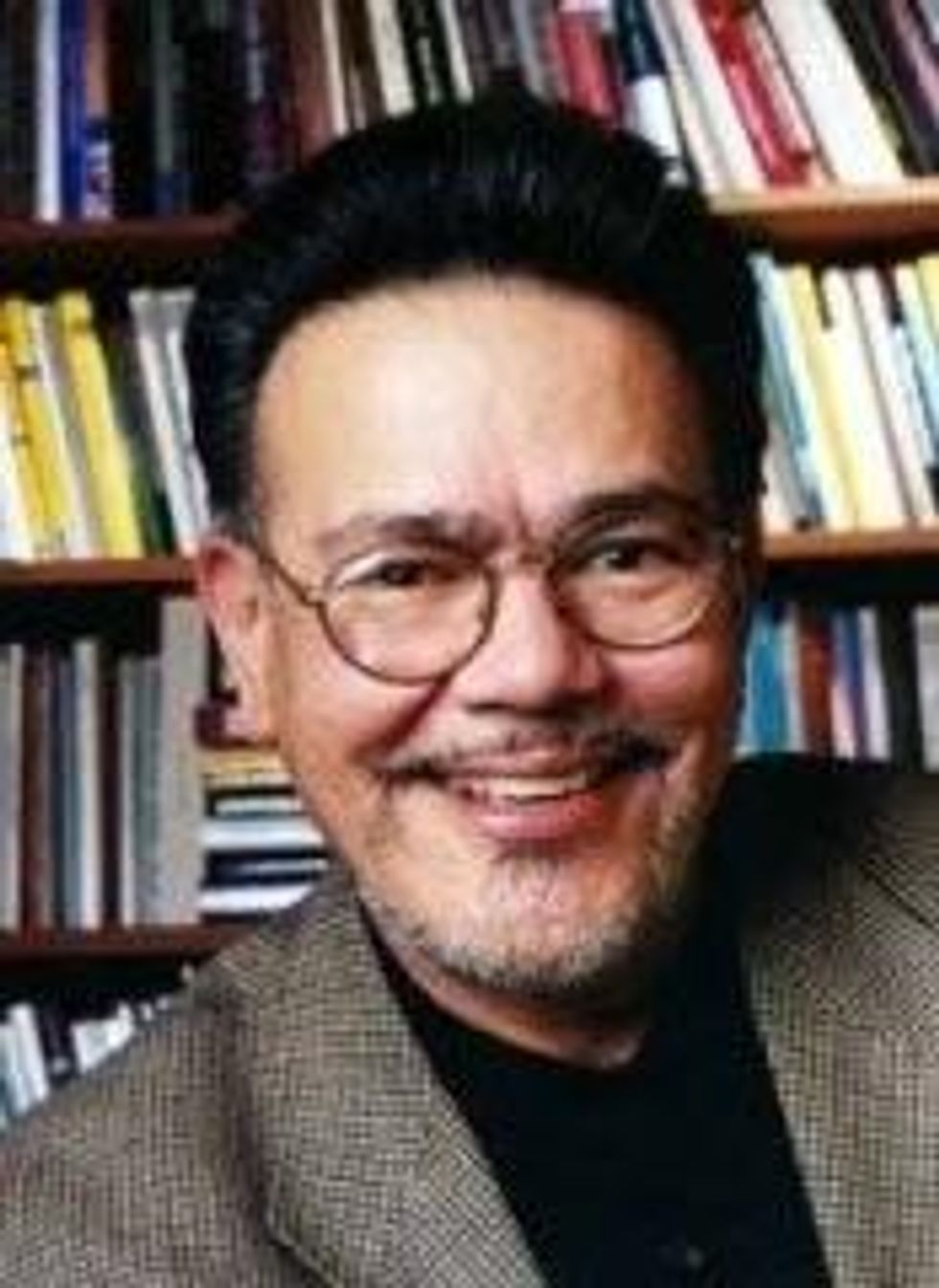Outrage and disgust continue to build over the decision by the Tucson, Arizona, unified school system to ban books by Chicano and Native-American authors. The punitive action follows on the heels of the decision by state politicians to shut down Tucson highly effective ethnic studies program that focused on Mexican-American life and culture.
Over 60 percent of the students in Tucson are of Mexican descent and the program was widely regarded as an educational success. However, the program drew the ire of some Arizona whites who were offended by lessons about white oppression of Chicanos and Native-Americans.
Among the banned books are Pedagogy of the Oppressed by Paulo Freire, Occupied America: A History of Chicanos by Rodolfo Acuna, 500 Years of Chicano History in Pictures edited by Elizabeth "Betita" Martinez, Chicano! The History of the Mexican Civil Rights Movement by Arturo Rosales, Critical Race Theory by Richard Delgado, and books by Native-American writers such as Leslie Marmon Silko, Buffy Sainte-Marie, and Winona Laduke.
The decisions to ban the books followed a 4-to-1 vote on Jan. 17 by the Tucson Unified School District board to cave in to the State of Arizona, and to put an end to Mexican-American Studies.
According to various news reports, and interviews with teachers directly affected by the book ban, the banned books were seized from classrooms right in front of students. The teachers were given a couple of days to figure out what to teach in place of the Mexican Ethnic studies curriculum. Some students in these classes were reported to be in tears as the books were packed up and shipped off to a book depository.
I spoke on Wednesday with Dr. Carlos Munoz, one of the key pioneers in Ethnic Studies and Chicano Studies in the country. Dr. Munoz was the founding chair of the first Chicano Studies Department in the nation in 1968, at the California State University at Los Angeles, and the founding chair of the National Association of Chicana and Chicano Studies.
He is a pioneer in the creation of undergraduate and graduate curricula in the disciplines of Ethnic Studies and the author of numerous pioneering works on the Mexican-American political experience and on African-American and Latino political coalitions. His book, Youth, Identify, Power, the Chicano Movement won the Gustavus Myers Book Award for Outstanding Scholarship in the Study of Human Rights in the United States.
DB: Well it's good to have you with us, although it's a terrible situation and this thing, believe it or not, started to unfold on Martin Luther King's birthday celebration. Let me get your initial response to what happened here. What were you thinking? What went through your mind?
CM: Well you know, I don't have the words to express my anger at what's taken place in Tucson, Arizona. It's just simply unbelievable. I mean never did I expect at this point in time, in history, after over 40 years of scholarship that has been generated and published and being taught in universities across this country, specifically on the Chicano experience in the United States. ...
Scholars of Mexican-American background and other people of color, scholars of color, have collectively made a profound, profound contribution to the body of knowledge of people of color in this country -- and have rectified, and documented a history that speaks the truth of what this country has been historically as an empire, a promoter of imperialism throughout the world, as a racist white-supremacist nation as witnessed by the so-called Founding Fathers who were [in many cases] slave owners, you know, and this kind of truth doesn't speak well to what's going on in Arizona.
Because I think that the people who are there, responsible for this particular tragedy in public education, are either ignorant and never attended a university, and never were educated, and/or are members of the Tea Party or some other extreme racist organizations that are promoting anti-Mexican racist hysteria. So I think what we see here, as I see it anyway, is a situation where right-wingers have collectively organized there and make this an issue, because as a manifestation of the perceived threat, of what I call, the "brown invasion" as has been capsulized by a lot of the right-wing politicians in this country. The increasing, of what I call, demographic revolution that we are witnessing right now has become a threat to many people in power, especially in Arizona.
As you know, they are the ones who started this whole process of criminalizing Mexican undocumented workers, you know, and have set the tone for other states to follow that are under the tutelage of right-wing political folks. So I think it is something that needs to be protested. People have to take to the streets, as they are doing in Tucson. It is something that is an issue that has become, I think, very, very critical and deserves the support of all Americans, regardless of race, ethnic backgrounds. It is just ridiculous.
DB: One of the things that people who work within the system, we were speaking with teachers and students, is that it was an incredibly effective program in which students were succeeding, students who were dropping out before were staying in school, and going on to higher education. Could you talk about how that happens, why it's so important for these students and the school system there is 61 percent Mexican-American? Why it's so important, say a little bit more about that.
CM: Well, you know, I think in any process of education if you are a student and you don't hear about people like yourself in the making of history in this nation you are bound to feel somewhat inferior, you know what I mean? I've gone through that when I was a kid. My God, it's all white history, and all the heroes were white. And you never hear about the good things that were done by folks of color in our society, in the building of this nation.
And so it's been, prior to the emergence of Ethnic Studies and Chicano Studies in the universities there were no books about the Chicano experience. The consequence of that, as I witnessed earlier, if I experienced it was an inferiority complex, you know. My God, you know, all we hear about Mexicans, for example, they are criminals, you know, they are drunkards, you know, the women are whores, you know. There comes all these racist, negative stereotypes that are promoted in the movies and television, newspapers. So the consequence of that was historically, what I call the colonization of the mind, where young people of Mexican descent were pushed into thinking that they were inferior, the culture was inferior.
Now, what's happened in Tucson, has been a remarkable, remarkable process of deep colonization where the issues that have been presented there in public schooling have been taken on by teachers, staff members, and the school district who have had the courage to develop a program of Mexican-American studies. The first, by the way, the only one in the whole country at the public school level. A remarkable feat that ought to be celebrated and be set up as, you might say, an example of what other public school systems, including those of us here in California, those systems here, ought to pursue.
And the consequences have been remarkable, as you mentioned, the fact that in Tucson, Mexican-American studies program has resulted in a radical turnabout in terms of young people taking pride, becoming proud of their heritage, becoming proud of the fact that they learned that they come from ancestors who have made contributions, profound contributions to civilizations throughout the Americas. I mean that fact alone is incredible, an intangible contribution to boosting the feeling of being worthy as human beings. And that kind of feeling is very, very important to have in order for young people to succeed in life, beyond public school.
So I think what has been done in Arizona by these white politicians has been an effort to return to the days of the 1950s, previous to the Chicano movement and other civil rights movements in this country to try to "Americanize" and re-colonize the minds of young people in the state of Arizona.
DB: You know banning this program in Tucson is almost like banning the speaking of Spanish in Mexico. Anybody who has spent time in Tucson and Nogales, Arizona understands how prevalent, I mean, it's Mexico but it's called the United States. Now they did this in front of the students. The decision was made for the teachers to be boxing the books up in front of the students, shipping them out for storage. Kids were crying.
I remember when I was down there in Tucson, we were broadcasting from there one young student told me that she was really thinking about suicide and had actually tried to take her own life once until she got into a program like this and began to feel alive. Could you comment on that?
CM: This is an example of what I was referring to. When young people are awakened by educators to who they really are, where they come from, and why it is a source of pride, or should be a source of pride. I mean, it's incredible, you cannot put value on that kind of influential discovery and awakening of a young mind. It makes a world of difference to a young person, to find meaning in their lives, that carries them forth towards a positive direction in society. They become good citizens and critical-thinking people that are going to make contributions to the betterment of the society as a whole.
DB: You know, one has to believe, or gets the strong feeling that they really don't want these students to succeed because the program was so successful. The amount of, the percentage of students who ended up going to college as a result of this kind of study was overwhelming and one has to think that this is an attempt to cripple, undermine and keep these kids down rather than to cheerlead the fact that they are getting better, things are getting better and they are really succeeding. It's racism at the core, wouldn't you say?
CM: I agree. I wholeheartedly agree. And I think, to add to that, what I see here is that with regards to the demographics that Arizona has become even more "Mexican" than ever. They envision that out of all these young people developing a critical thinking capacity and proud identity that they are going to become the future politicians of Arizona, and that's a scary thing. That's a scary thing for these guys. My God, man, we'll not only have undocumented workers who are poor and are a cheap labor source, we're going to have people now, who are getting into powerful positions in the future that are going to take away from what belongs to "us."
And so I think that's the bottom line here. They want to put a stop to this process of producing young leaders that are going to speak truth to power, and are going to make a difference in the future in terms of turning the tide against racism and other things that are negative in Arizona for Mexican people as a whole.
DB: Some of the people who have been banned are labeling this as sort of an inquisition. I thought that was maybe an overstatement but maybe now I'm thinking it's an understatement. I'm thinking about books that were banned. Can you imagine The Pedagogy of the Oppressed" by Paulo Freire, Occupied America, a History of Chicanos by Rodolfo Acuna, a good friend of yours. We actually had the both of you on the show not too long ago. Talk about what these white people might be afraid of that's inside these beautiful books.
CM: Well, they are afraid of the truth. You know the truth hurts. And I think that, as I said earlier, the fact that scholarship like Rodolfo Acuna's incredible path-breaking book. He was the first one to put out a history, a true history of America, in a sense that he documents, beyond the shadow of a doubt, the nature of our society and how, in fact, Mexican-Americans in particular have struggled for social justice throughout the history here of this country. And it is just remarkable that all this knowledge that Occupied America represents, they don't want to, they don't want to acknowledge it. They have problems with it, because Rody Acuna speaks the truth, as do all scholars, and Shakespeare speaks the truth.
Talking about this is really absurd, you know, when in a sense even people like Shakespeare, an English, a white guy who had the audacity for his time to speak truth to power of the British empire and put out the issue of colonization and oppression in that regard. Even there they couldn't tolerate that particular scholarship.
So basically it's an ideological struggle going on, it's a cultural war that is what's happening in Arizona between those who espouse the racist framework of analysis that white Eurocentric thought should be predominant in public education. And those of us who have struggled against that and have created a teaching now, a very definitely more truthful history of our society, and who have gone out of our way collectively to push forth a more, you might say, visionary process of education that is inclusive of all people, not just Mexican-American, but all people,
You know we don't do what we are accused of doing, dividing, being divisive, un-American. To the contrary, we have been most American in the context of continuing a process of creativity, intellectual thought that our ancestors started here in the Americas long before the white man arrived to conquer and engage in conquest and that is that we have ancestors that generated civilizations way back when, and our people as a whole have completed that process.
And I think we are remarkable in the context of what we represent as a people, in terms of not just being indigenous people but also inclusive of all the other dimensions of the reality that we represent, as a multi-racial, multi-ethnic, multi-cultural people in our society. And this is what is not acknowledged by these people. They don't want to acknowledge that, it is scary to them. And rightly so, should be scary to them. So that's the whole issue now.
DB: I'm wondering Dr. Munoz, I don't see your book on the list yet, Youth, Identify, Power, the Chicano Movement but I guess it's going to become a sort of a diploma that you put on your wall along with the other ones that you have. "I was banned in Tucson and I'm proud of it."
CM: Well, this is the thing that I tell people, that all these people, all these banned books represent, I think, quite an honorable group of people. It's incredible. I feel kind of ....
DB: ...left out?
CM: I want that honor of being identified by this right-wing. So I hope I do get that honor down the road. But in the mean time I'm very proud of all these folks down in Arizona, how they have gone to bat, supported the defense of Mexican-American studies in Tucson.
DB: And it is troubling that this comes in the context of really, what is the new civil rights movement which is the rights of migrant workers, immigrant workers; the workers who do the hardest work in this country that we all depend on. It's a way to sort of build the borders higher even those who are citizens in this country, it's building walls around their lives and condemning their kids to a life less than they deserve.
CM: Yeah, I agree. I think what's happening is that there's an effort definitely to put down Mexican-Americans in Arizona there, to criminalize them, to put them as social outcasts, not worthy of being "American" unless, of course, they take the path of assimilation into the dominant culture, which, by the way, won't be so dominant pretty soon, down the road. This is what I made reference to earlier, the demographic revolution is a reality. Whether some white people like it or not we're going to be the majority in this country.
DB: Well, here in California whites are already the minority. Right?
CM: Exactly, right. Hawaii, and here ... so it's happening. Now mind you, we don't want to romanticize that fact because I always provide my critical analysis of it, the demographic revolution, in the context that unfortunately that is not necessarily going to be a consequence of profound change. And I site President Obama as an example, big deal we have a black president, but where are we? We are worse off than we were during the Bush presidency.
So the point here is not so much to romanticize that people of color are going to take "power." It's a question of looking at the reality, that indeed, there is that potential to honor this diversity of American culture there will come about a more humanistic society that is going to place its emphasis on social justice and peace, and not war and violence, in our society and throughout the world.
DB: Now finally I want to get back to the revenge aspect of this action taken in Tucson and what it looks like, and what may need to happen in terms of a fight-back. We understand that white politicians took this action starting with the fact the Dolores Huerta was in Tucson, and talked about how white people hate brown people, and white politicians there hate brown people. And those politicians never forgot it, they are in positions of power now, and they are punishing the people. Respond to that and what the fight-back, that you'd like to see, what it should look like?
CM: Well, I think there should be a revolution. This is the time for the revolution to emerge in the context of Dr. King's call for a revolution of values. I'm not talking here about any other Hollywood version, Hollywood revolution whatever, of violence and all that but rather a non-violent revolution as Dr. King called for that's going to transform the value system we have now in our society away from a process of individualization, what's best for the individual, what's best for the banks, what's best for the 1 percent but rather what is best for the 99 percent of our society.
That includes the majority of people of color, and poor whites, and the white middle class, as we know. So I think this is what I would like to see happen there. And I think also we have to definitely make clear that is not all white politicians, there are some good folks out there who are allies but it's a kind of white politician that we need to address this issue towards and that is the right-wing, Tea Party, white politician type of person who is out there doing the evil deeds that are taking place in Tucson, Arizona.





